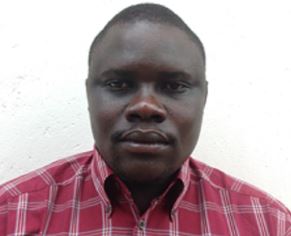A political analyst, James Boboya, has said South Sudan’s situation remains dire, threatening the implementation of the Revitalized Agreement on the Resolution of the Conflict in South Sudan (R-ARCSS.
Speaking to Radio Tamazuj on Thursday, Boboya emphasized that the failure to fully implement Chapter 2 of the peace agreement, which outlines the transitional and permanent security arrangements, had hindered the formation of a unified army.
The agreement designates First Vice-President Riek Machar as Commander-in-Chief until the unification of forces is completed, yet the current setup has resulted in two commanders-in-chief—President Salva Kiir and Machar.
“If the unification had proceeded as per the agreement, we would now have 83,000 forces under a new and independent South Sudan People’s Defense Force,” Boboya explained. “Until that happens, the country will continue to operate with two commanders-in-chief, which contradicts the goal of the agreement.”
He expressed concern over the leaders’ disregard of the peace agreement, warning that the country risked sliding further into instability. He called for urgent action, stressing that unifying the forces should be a priority.
“The lack of political will and the growing trust deficit between the parties are the main obstacles to achieving a single national army,” he stated. “This is not about blaming Machar or Kiir individually, every politician in South Sudan has failed to engage constructively and transparently in ensuring security arrangements are implemented.”
Boboya proposed that President Kiir should convene a meeting with Machar and other political leaders to set a timeline for the completion of security arrangements.
He also suggested that the government seek financial support from international partners to speed up the unification within six months.
“The remaining forces that cannot be unified should be demobilized, retrained, and reintegrated into society with new skills,” he advised.
Boboya criticized Uganda’s involvement in the conflict, arguing that as a guarantor of the peace agreement, Uganda should instead act as a stabilizing force.
He suggested that Uganda’s army (UPDF) could help train the South Sudanese forces rather than taking sides.
“Uganda has experience in stabilizing Somalia and could play a constructive role in South Sudan by training and supporting the integration of forces,” Boboya said.
The analyst also questioned the role of international stakeholders, including China, the African Union, and the Troika (the US, the UK, and Norway) in ensuring the agreement is upheld.
“The international community must hold all parties accountable and push for the urgent implementation of security arrangements,” he added.
Boboya warned that ethnic divisions and regional tensions continued to escalate across South Sudan, further complicating peace efforts.
“If this situation is not addressed urgently, it will be catastrophic in the coming weeks,” he cautioned. “It erodes prospects for a stable transition and makes the planned elections unrealistic.”
The government’s failure to provide services, coupled with an economy on decline, have made the country overly reliant on international humanitarian aid, he noted.
He criticized the corrupt financial practices, including money manipulation within the Ministry of Finance, which he argued undermined economic stability.
Boboya urged South Sudanese to hold their leaders accountable.
“We have placed too much faith in politicians who have repeatedly failed us,” he stated. “It is time South Sudanese demanded accountability and actively participate in shaping the future of our nation.”




